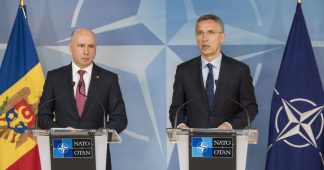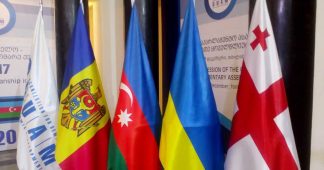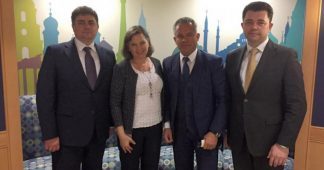By Arkady SAVITSKY
24.06.2018
On June 22, the UN General Assembly voted for the Chisinau-submitted resolution calling on Russia to immediately withdraw its peacekeepers from Transnistria, a breakaway region of Moldova. It says no foreign troops should be stationed on Moldovan soil. PM Pavel Filip said the vote was a symbolic victory over Russia. Is it really a great diplomatic success? The issue should be looked at more closely before drawing any definite conclusions.
The view that Russia should leave Transnistria is not shared by Moldovan President Igor Dodon representing the large Socialist Party predicted to win the next election, which is slated for November. It means there is no consensus on the issue inside the country and it’s not known if those who call for Russia’s withdrawal constitute a majority of population. It would have been logical for the Moldovan government to wait for the election results and see if its stance is backed by popular support. It did not do it. Any assessment must take into account the fact the government’s position on the matter can change till the end of the year and the probability is high. In a few months the document may lose its relevance.
The resolution was backed by 64 states with 83 UN members abstained and 14 voting against. The United Nations Organization has 193 members. As one can see, there was no overwhelming support, to put it mildly. 64 out of 193 means the resolution was backed by only 33 percent of members – not a big thing! 43 percent failed to say yes or no. Decisions on important problems require either a two thirds majority or a simple majority. It was not the case.
There had been no consultations and discussions held before the vote. Many UN members don’t know much about the problem that few nations have any relation to or really interested in. Anyway, the result of the vote is not binding.
At present, 450 Russian soldiers are stationed on a peacekeeping mission in line with the decision of the 1999 OSCE summit. The Operational Group of Russian Forces is an 800 men strong unit deployed to guard ammunition depots near Kolbasna settlement left over from the days of the USSR. Overall, there just over 1250 servicemen in Moldova. This force is too small to pose any danger to anybody. All the stories about “occupation”, “aggression” or whatever sound funny.
The document mentions only the Group of Russian Forces in Moldova, not the Russian peacekeepers monitored by the Joint Control Commission but the two contingents are elements of the same mission, their functions are interrelated. All Russian servicemen are peacekeepers. 450 are not enough to prevent the worst from happening.
The resolution ignores the fact that the decisions of the military mission in Transnistria were taken within the framework of the OSCE. The document undermines OSCE procedures. The Russian mission is carried out in compliance with international law.
Transnistria separated in 1991 after the dismemberment of the USSR. A bloody conflict broke out in 1992 to end with the arrival of Russian forces to be followed by negotiations and a truce. The Russian mission in Moldova has been a success for a more than a quarter of century. Nobody else but Moldova insisted on sending a peacekeeping force in 1992.
Chisinau likes to emphasize that the 1999 OSCE Istanbul summit included the commitment by Moscow to withdraw but it never remembers that the agreement was linked to the provisions of the 1990 Treaty on Conventional Armed Forces in Europe (CFE) that limited NATO and Warsaw forces. NATO actually never complied with it as it kept on expanding. Russia had to pull out from the CFE in 2015. The treaty is dead today. It also should be remembered that the Istanbul document does not rescind the 1992 truce accord.
If the troops leave, a big fire can be kindled again. As a UN member, Russia is obliged to prevent such a development. If it leaves and shooting starts, the very same people who demand its withdrawal will blame it for allowing such a horrible thing to happen. The responsibility to protect (RtoP) is a UN fundamental principle all states are to comply with. Russia is protecting the people of the region from horrors of another war.
And now the main thing – the opinion of the people of Transnistria was completely ignored! Should they be deprived of their right for self-determination? The Transnistrian democratically elected leadership supports the Russian military presence. Nobody calling for Russia’s withdrawal offered any alternative to guarantee peace in the region.
Also read
Moldova-Ukraine-Georgia Alliance: Nothing More Than Flash in the Pan
Political Persecutions in Moldova











